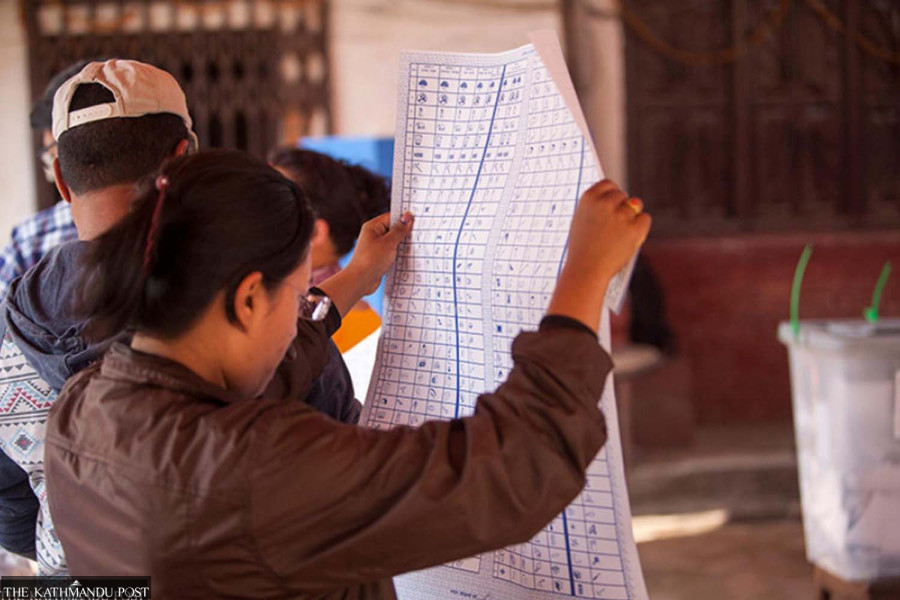Editorial
Vote wisely
Those voting in the upcoming elections will have a big responsibility on their shoulders.
After five years of complaining, Nepalis are again presented with an opportunity to vote for the change they want. In a democracy, elections are the most effective way to bring about desired change peacefully. But that is possible only if voters judge the candidates for their agendas, promises and possibilities, and certainly not by renewing old allegiances by blindly voting for a particular party or candidate. There have, thankfully, been some positive changes in how people respond to alternative voices. The victory of independent candidates in local elections in major cities like Kathmandu, Dharan and Dhangadhi suggests that people are indeed willing to tweak their old voting patterns. Not only has the rise of independents shown the possibility of alternative voices in politics, but also drawn the attention of young voters. The change does not stop there. There is a whole new generation of youth leaders who are now contesting parliamentary and provincial elections this time, breaking the narrative that Nepal’s electoral politics is essentially an exercise in gerontocracy.
Top leaders of the big parties, rattled by the rise of independents and youth leaders from across parties, including their own, have started vilifying them as inexperienced and flash-in-the-pan. Their fear of alternative voices is understandable. The bigger worry is that voters are being asked to choose mostly from among the old and visionless candidates, at least in the case of big parties, leaving little space for a radical transformation in the way they vote. Still, if they vote wisely, there is a possibility of at least some promising candidates from various untested parties and independents, as well as from established parties, winning come November 20.
There is no alternative to political parties in a participatory democracy and the established parties in the current political system are no anomaly. But as they abandon their ideological moorings, they also risk being irrelevant. The height of irresponsibility they have shown in recent times has made people suspect the democratic process itself. For most of the past five years, the established parties have shown no inclination to fulfil the promises they made in their manifestos in the last elections. Having left principled politics behind, they were in the race for power by hook or by crook as their ultimate destination became the centre of executive power in Singha Durbar. The hopes that the constitution had created in 2015 were belied, as neither the ideals of constitutionalism nor the aspirations of the people were honoured.
Again, even as they prepare for yet another round of elections, the parties have stuck to the respective alliances not on the basis of any ideological closeness but because of mutual fear of irrelevance given the uncertainty of the electoral outcome. The elections, thus, have become devoid of agendas for positive transformation as the parties this time are mostly fighting for survival. People understand this and are willing to push for change. Again, they may have limited options as the major parties have been reluctant to bring fresh voices to the forefront. Yet they can still send a powerful signal in favour of a more youthful and ideology-based politics by voting wisely. Let the transformation begin on November 20.




 22.6°C Kathmandu
22.6°C Kathmandu














